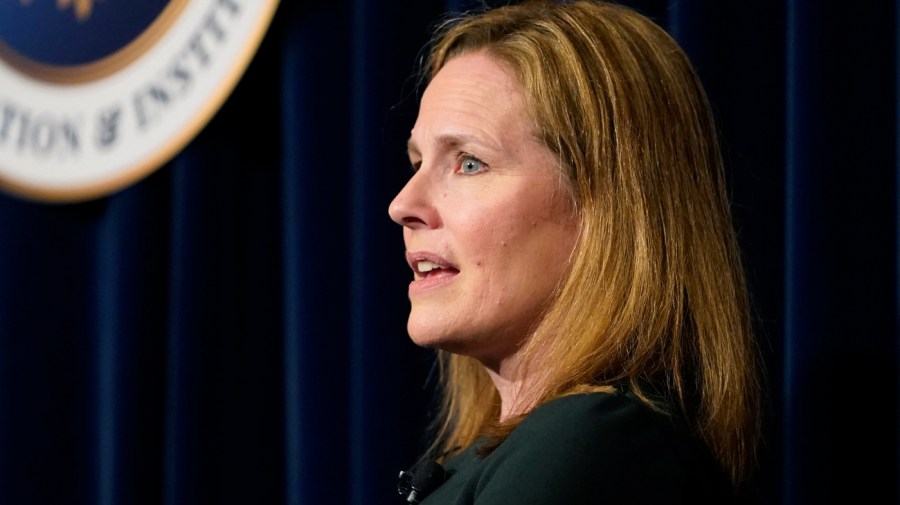
It seems that hardly a day goes by, or maybe even an hour, without President Trump issuing another unprecedented executive order.
It is a toss-up which is the worst — attempting to abolish birthright citizenship, firing inspectors general without notice to Congress, freezing government spending for essential programs, imposing a gag on health care agencies — but they will no doubt keep coming.
An executive order is the president’s directive to enforce or interpret the law in a particular way, under Article II of the Constitution, which vests the “executive power” in “a President of the United States of America.”
Executive orders are nonetheless subject to statutory and constitutional law. Thus, lawsuits have already challenged some of Trump’s orders, in several cases leading to preliminary injunctions that have not yet been reviewed by higher courts.
We can therefore hope that the Supreme Court will be the backstop to at least some of Trump’s most extreme measures.
Yes, I know that the Supreme Court hasn’t exactly been tough on Trump. The six-to-three conservative majority gave him a series of favorable rulings during the 2024 campaign, the most shocking of which held him immune from prosecution of illegal acts during his first term.
But unlike Trump’s first term, there are no grown-ups in the Cabinet to restrain his worst impulses, as he has filled his administration with Fox News commentators and other supine loyalists. Republicans in Congress have already demonstrated eager acquiescence, to put it mildly, by confirming so many manifestly unqualified nominees.
That leaves the Supreme Court, with all its flaws, to determine whether Trump’s assault on democratic values will prevail. It is a fraught task, made even more difficult by the court’s dwindling reserve of public confidence, and the fury with which the MAGA faithful would greet any adverse rulings.
At least two conservative justices would have to defect in order to invalidate any of Trump’s directives. There is a chance, however dim, that could happen.
The prime candidate is Chief Justice John Roberts, who showed some independence by departing from the majority opinion in the Dobbs case, which overruled Roe v. Wade.
Among Trump’s three appointees, Justice Amy Coney Barrett is probably the likeliest defector, having disagreed with the other conservatives (although not voting against them) in two of Trump’s 2024 election cases.
Barrett has also shown admirable integrity. She recently recused herself from an Establishment Clause case over public funding for religious charter schools, an issue that would ordinarily be important to her. Unfortunately, Barrett provided no explanation for her recusal, noting in a single sentence that she would take “no part in the decision or consideration” of the case.
Although Barrett’s order did not mention it, the Notre Dame Law School’s Religious Liberty Clinic represents one of the parties to the case. Barrett is a Notre Dame alumna, and she was a full-time professor there before becoming a judge. She continues to teach at Notre Dame as an adjunct, drawing a $15,000 salary, although not in the clinic.
It is impossible to know Barrett’s reasoning. Was her recusal because of the Notre Dame connection? If so, which aspect of it? If not, what was it? It has been suggested that she is close friends with two of the Religious Liberty Clinic’s faculty fellows, although it is unknown whether they played any role in the Supreme Court case.
This might seem like a small matter, but it may provide a window into Barrett’s style of judging.
Barrett’s disqualification is significant because many federal judges, and most of the justices, teach at law schools from time to time, and it is common for law schools to have clinics that litigate in federal courts.
Her recusal may imply, sub silentio, that other judges should disqualify themselves in similar cases, where a law school clinic serves as counsel and the judge teaches at the same school. Or it may not if Barrett’s recusal was for some other reason, known only to her and perhaps a few others.
Trump, of course, will rail against any loss in the Supreme Court, no doubt insulting the justices who rule against him. Worse, he will surely take advantage of even the slightest latitude or ambiguity.
If, and hopefully when, the Supreme Court invalidates his most abusive executive orders, perhaps by a bare majority, the decisions will need to be unequivocal, with maximum detail and lucidity.
Given her status as a possible deciding vote against Trump, Barrett’s commitment to transparency and clear explanation would be especially important. Withholding her recusal reasons was within her discretion, but one must still wonder about future opacity, which would be a mistake.
I realize that there are far weightier concerns on the horizon than the adequacy of Barrett’s explanations. But attention to small things can still matter when great issues are at stake.
Perhaps it seems that I have only suggested rearranging the deck chairs on the Titanic, but even that can be useful if they get in the way of the lifeboats.
Steven Lubet is the Williams Memorial Professor Emeritus at the Northwestern University Pritzker School of Law.











